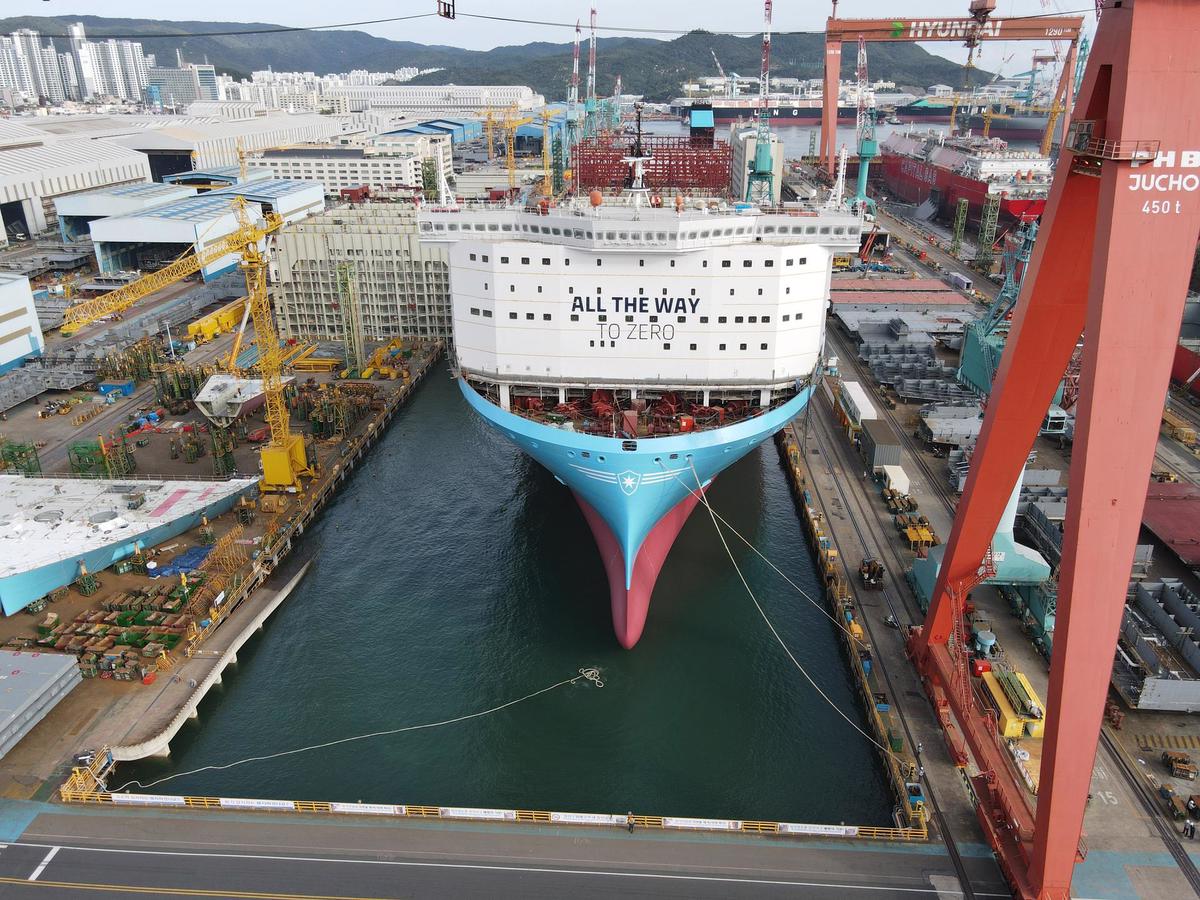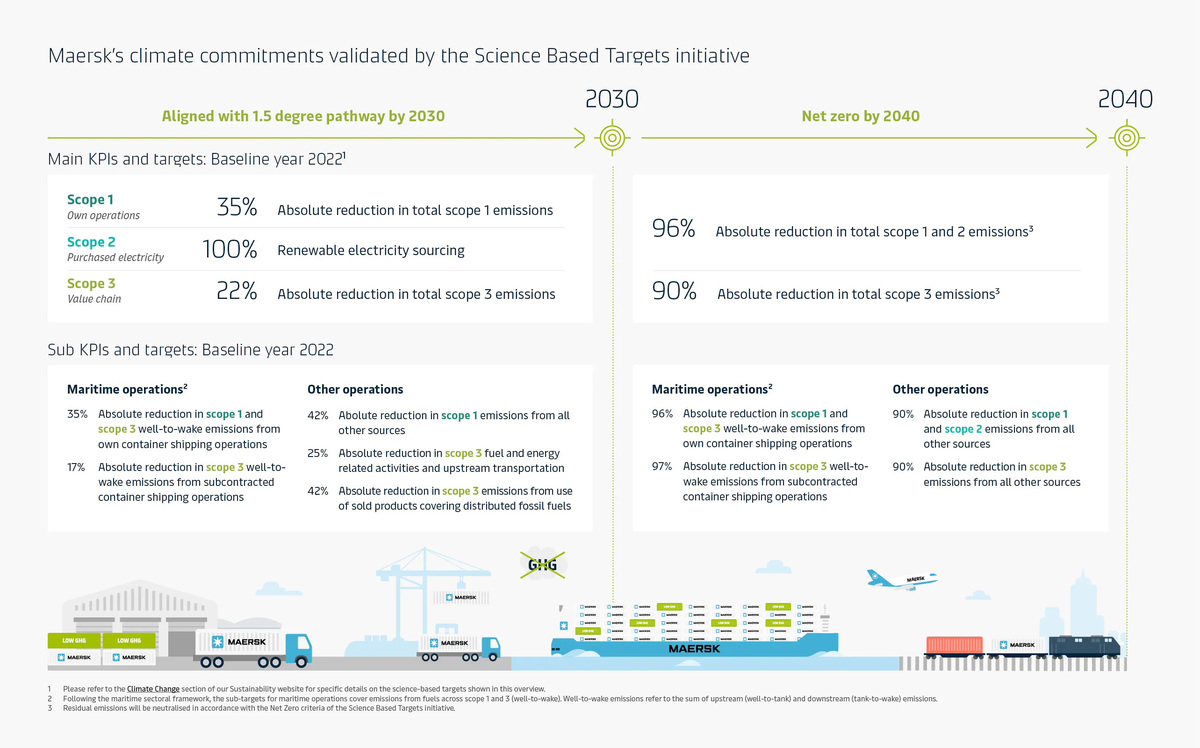Maersk’s emission reduction targets now backed by science
In an industry first, Maersk's greenhouse gas (GHG) emission reduction targets for 2030 and 2040 have been validated by the Science Based Targets Initiative (SBTi).
 PHOTO: The methanol-fuelled Ane Maersk at the HD Hyundai Heavy Industries shipyard in Ulsan, South Korea. Maersk
PHOTO: The methanol-fuelled Ane Maersk at the HD Hyundai Heavy Industries shipyard in Ulsan, South Korea. Maersk
By 2040, Danish shipping major A.P. Moller-Maersk aims to achieve:
- 96% absolute reduction in direct and indirect Scope 1 and 2 GHG emissions throughout its operations, compared to 2022 levels.
- 90% absolute reduction in Scope 3 emissions across its supply chain, compared to 2022 levels.
It will strive towards achieving net zero by 2040, which would be a decade ahead of the IMO's 2050 target year.
In addition, Maersk has also set "new specific and absolute targets" for 2030 that will serve as short-term goals as it works toward its 2040 goals.
SBTi’s approval confirms that its self-imposed targets such as these can be in line with the Paris Agreement, Maersk argues.
 TABLE: Maersk's GHG emission reduction plan. A.P. Moller-Maersk
TABLE: Maersk's GHG emission reduction plan. A.P. Moller-Maersk
A science-based approach to decarbonisation
SBTi is a global initiative undertaken by multiple international organisations including the United Nations Global Compact to help companies define clear pathways to reduce their GHG emissions.
In December 2022, it partnered with University Maritime Advisory Services (UMAS) to develop decarbonisation guidance for the shipping industry. It highlighted two interim targets that shipping should pursue to be in line with the Paris Agreement and to achieve net zero by 2050:
- 36% reduction in well-to-wake GHG emissions by 2030
- 96% reduction in well-to-wake GHG emissions by 2040
Authors of SBTI’s guidance report have suggested that fuels wiht low- and zero-emission potential like hydrogen and ammonia “need to make up 27% of maritime fuels by 2036” and “almost replace fossil fuels completely by 2045” to meet shipping's decarbonisation goals.
Maersk currently has 23 methanol-fuelled container vessels on its orderbook, and two vessels that have already been launched. In addition, it will retrofit 11 vessels with dual-fuel methanol engines. It has also signed supply agreements with 11 methanol producers to source over 2.2 million mt/year of green methanol by 2025 for its upcoming fleet.
“We are committed to do our share to reach these targets, but we cannot do it alone. To succeed, we are dependent on and working with the ecosystem that we are part of, including customers, suppliers, industry peers and regulators,” Rabab Raafat Boulos, the newly appointed chief operating officer at Maersk said.
“Importantly, there is a need for global regulations from the International Maritime Organization (IMO) to close the price gap between fossil and green fuels to secure a level playing field,” she added.
By Konica Bhatt
Please get in touch with comments or additional info to news@engine.online






